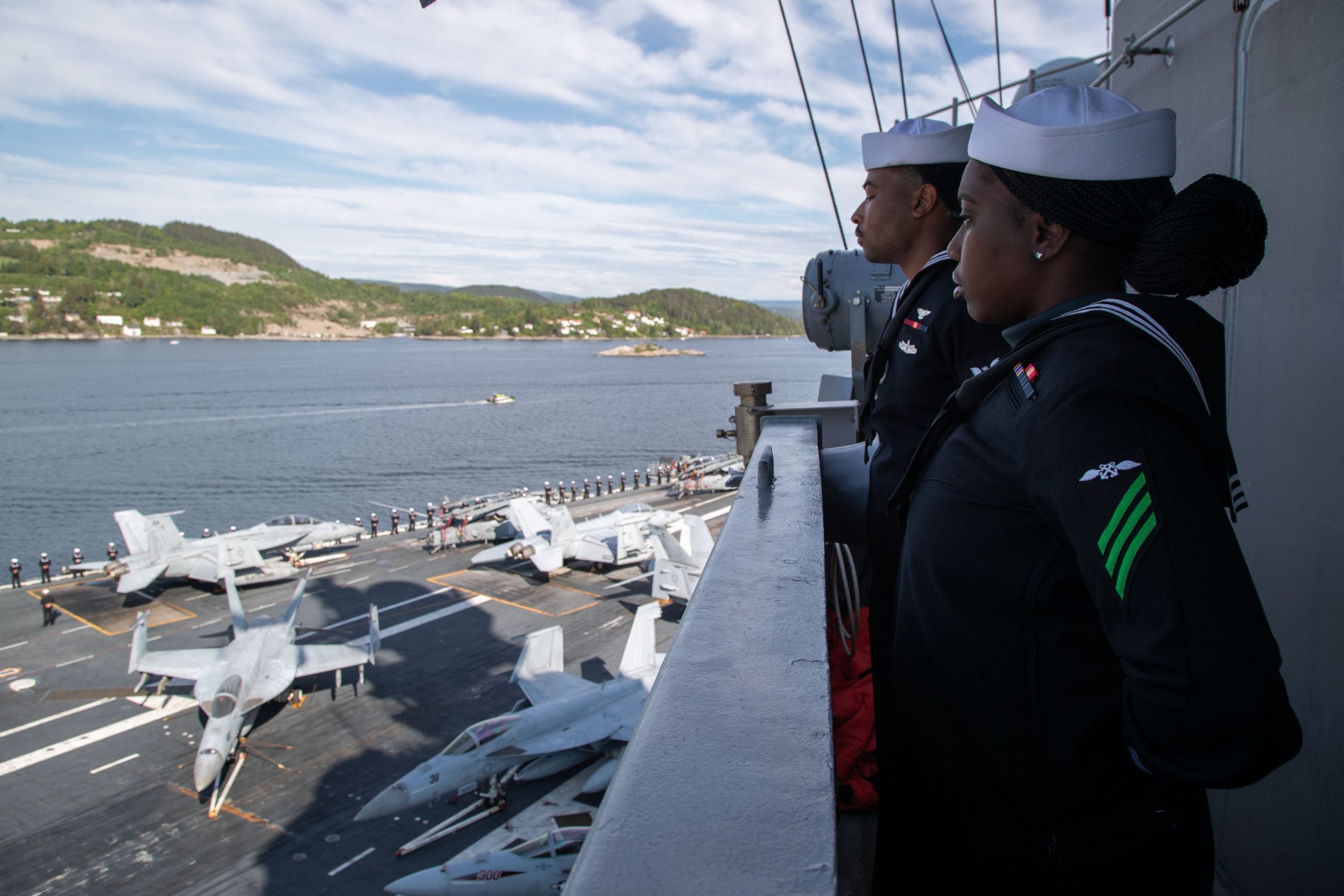
The arrival of the US aircraft carrier marks the first time one has visited Norway in 65 years, providing an opportunity to enhance US-Norwegian partnerships.
The visit also showcases the powerful display of the US Navy and Royal Norwegian Navy’s interoperability, as the USS Gerald R. Ford strike group integrated with HNoMS Roald Amundsen as the GRFCSG surface warfare commander before arriving. The ship will host local officials and key leaders for a reception to honour the US-Norway relationship.
During his visit to the ship Monday, Norwegian Defence Minister Bjørn Arild Gram said, “This is Norway’s security. It is a clear expression of our security guarantees through NATO, not least the close cooperation and partnership we have with the United States.”
A robust transatlantic relationship between the US and Norway has translated into US dominance of Norway’s defence import market. From 2017–21, 83% of Norwegian defence imports came from the US, according to GlobalData’s “Norway Defence Market 2022-2027” report.

Ford-class aircraft carriers introduced 23 new technologies, including electromagnetic aircraft launch system, advanced arresting gear and advanced weapons elevators. The new systems incorporated onto Ford-class ships are designed to deliver greater lethality, survivability and joint interoperability with a 20% smaller crew than a Nimitz-class carrier, paving the way forward for naval aviation.
General Atomics supported the US in manufacturing the electromagnetic aircraft launch system and the advanced arresting gear for the navy’s aircraft carrier.
Meanwhile, Huntington Ingalls Industries has commenced the construction of the second Gerald R Ford-class aircraft carrier, the Doris Miller.
According to GlobalData’s “US Defence Market 2022-2027”, Between 2022 and 2032, three units are expected, with an estimated contract allocation of $17bn over the same period. Ten aircraft carriers of this class are expected to be part of the US fleet by 2058.”
“Norway is a strategic partner in the continued efforts to maintain a secure and stable Arctic and North Atlantic region that benefits global order,” said Rear Admiral Erik J. Eslich, Commander, Carrier Strike Group 12. “We are committed to our NATO Ally and fostering our strong relationship built on a foundation of shared values, experiences, and vision.”
James Marques, aerospace, defence, and security analyst at GlobalData, provided his view: “Norway is important in NATO as an Arctic state with many specialities in cold-environment military operations and training.
It is also geographically important as being on the North Sea coast, which must be constantly monitored for Russian navy activity. As the Polar ice caps melt and the seas around the Arctic become more accessible, this region will only become more economically and strategically relevant to Europe and the US.”




